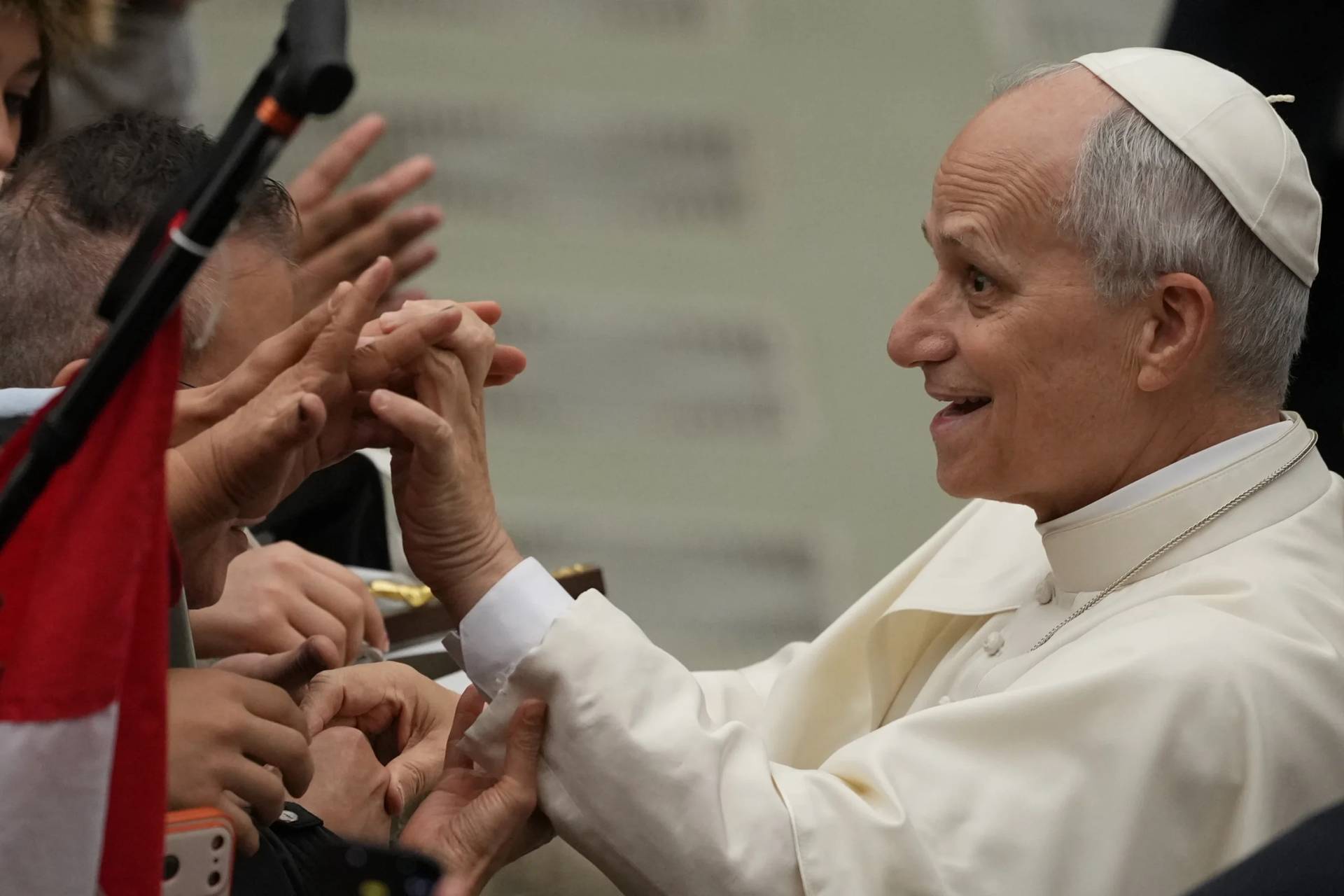[Editor’s Note: Daniel K. Williams is a professor of history at the University of West Georgia and the author of The Election of the Evangelical: Jimmy Carter, Gerald Ford, and the Presidential Contest of 1976, God’s Own Party: The Making of the Christian Right, and Defenders of the Unborn: The Pro-Life Movement before Roe v. Wade. He spoke to Charles Camosy about his latest book, The Politics of the Cross: A Christian Alternative to Partisanship.]
Camosy: A book with a title The Politics of the Cross suggestions a kind of theology is at work here. But you are a trained historian, which suggests that there is an interesting story behind your writing of this book. Can you tell us a little bit about it?
Williams: You’re right: My graduate training is in history rather than theology, and most of my previous scholarship has not directly engaged with theological claims in the way that Politics of the Cross does. But in many ways, Politics of the Cross is a culmination of all of my previous work, because it draws on the insights that I gained from my previous research to do what I have long wanted to do – that is, to talk with Christians about how our Christian faith should shape our political choices.
Politics has long divided the American Christian community. To a large extent, this is because Christians on both the left and the right have embraced partisan loyalty and single-issue political strategies without considering all of the nuances of the policies that they support. Those single-issue strategies are ultimately frustrating. They are also not gospel-centered, because they tend to be triumphalist rather than self-sacrificial, and they too often lead to a mindset that the end of destroying a single evil justifies whatever morally compromised means might be employed to eradicate it.
My previous scholarship examined some of these pitfalls of Christian political strategies. God’s Own Party explored some of the reasons why the Christian Right has achieved far less than its supporters had hoped, and my second book, Defenders of the Unborn, traced the ways in which the pro-life movement settled for aims that were far less comprehensive and less satisfying than the social justice vision that had once animated the cause. Although I wrote these books with a predominantly secular audience in mind, I realized, especially after the divisive political debates among Christians during and after the 2016 presidential election, that my research had profound implications for Christians and that I needed to find a way to speak directly to an audience of fellow believers.
Like many other members of Christian churches, I interact with people who have a wide variety of political views shaped by their faith commitments, and these interactions have made me cognizant of the desperate need in the church for better information on politics – that is, for works that will help people understand and engage with different political assumptions in the light of the gospel rather than merely embrace political slogans. I realized that I had the knowledge of modern American political history to write that work.
Because of my previous scholarship and training in policy history, I was able to talk about not merely how a Christian should think about the morality of abortion, but about what might happen when Christians translate those beliefs into policy in particular ways. Because of my study of the history of political parties, I was able to examine the historical development of both Republican and Democratic application (or misapplication) of Christian principles over the past century and a half. And because of my Christian faith commitments, I was able to directly engage with the values of fellow believers, using the language of scripture and the historic tenets of the Christian faith.
In the book you critique the “Protestant Moralism” of the Republican Party. Can you give us the broad strokes of this critique?
The Republican Party has been driven by strong moral claims from its inception. It originated as a party opposed to the expansion of slavery, and after the Civil War, it embraced other moral causes that were popular among middle-class Protestants, such as the temperance campaign and federal enforcement of anti-polygamy legislation. But its morality often reflected the socioeconomic class biases of the party’s supporters. By the 1920s, the party was far more focused on promoting the principle of “self-reliance” than on addressing the needs of recent immigrants or the poor.
While the Republican Party has changed in many ways over the last century, its close association with a version of individualistically focused Protestant morality has continued. During the early years of the Cold War, Republicans were especially likely to endorse an American civil religion that championed school prayer and claimed God’s support for military ventures to stop the spread of Communism. During the 1970s and 1980s, Republicans took the lead in the nation’s war on drugs. And in the late twentieth century, as the party’s core constituency shifted from mainline Protestants to evangelicals, opposition to abortion and gay rights became important causes.
In all of these campaigns, Republicans assumed that the legal regulation of individual vice would stop social evils – an assumption that frequently proved to be misguided. And in championing civil religion, Republicans substituted a vaguely defined generic theism for genuine Christianity. Trump supporters, who bear a close resemblance to the contemporary European nationalist far right, have been especially likely to confuse defenses of the rights of (white) Christians with the gospel.
The philosophy of the Republican Party is therefore a Christian heresy, because its promotion of allegedly Christian principles is based far more on self-interest than on self-sacrifice. But like all heresies, there is a grain of truth buried beneath the distortions. Republicans are correct to warn about the dangers of an overly powerful state, and there is a lot of truth in their emphasis on the institutions of church and family, rather than the government, as the primary agents of social reform. Christians should not necessarily reject these conservative principles, but if they choose to work within the Republican Party, they will need to be cognizant of its blind spots and its distortions of the gospel in the name of religion.
You also critique the “Secularized Liberal Protestantism” of the Democratic Party. Again, can you say something about this critique?
The Progressive movement, the New Deal, and the Great Society were inspired in part by multiple American faith traditions, including Catholicism and Black Protestantism, but they most closely reflected the concerns of liberal Protestants. Mid-twentieth-century liberal Protestants believed fervently in democracy, equality, religious pluralism, and an expanded social safety net, and the liberal wing of the Democratic Party reflected these values.
After the 1960s, many highly educated younger white Democrats from liberal Protestant families dropped out of church and no longer identified with a Christian tradition, but they kept most of the social and political values of their liberal Protestant upbringing. As a result, the secularized Democratic Party of today (which is, in reality, not quite as secular as some of its opponents believe, since it still includes large numbers of highly religious African Americans and Hispanics, as well as some progressive white Christians) retains a platform that is almost indistinguishable from liberal Protestantism.
Many theologically conservative Christians are therefore at odds with the Democratic Party in precisely those areas where theologically conservative Christians are most likely to take issue with their theologically liberal counterparts – namely, abortion and sexuality. But while these issues are certainly cause for concern, there may be an even deeper problem with the modern Democratic Party, from the standpoint of Christian orthodoxy: its rejection of any notion of original sin. For many political progressives, evil is almost entirely social rather than individual, and this social evil can almost always be eradicated through human effort alone. A Christian who chooses to work within the Democratic Party will have to reject this view. Perhaps particular Democratic policies can, on their own, be squared with Christian principles, but a theologically orthodox Christian cannot accept much of the party’s underlying philosophy.
Obviously the audience at Crux is mostly Catholic. How does a Catholic theological vision–and even a theopolitics (perhaps especially as visioned by Catholic social teaching) — relate to your critique of U.S. politics?
Although I write as a Reformed evangelical Protestant, Catholic readers will probably note – as I state in my introduction – the close correspondence between the political vision that I outline and the principles that have shaped Catholic social thought for the past 125 years. In order to reach evangelical Protestant readers, I chose to rely mainly on the language of scripture rather than papal encyclicals or other teachings of the magisterium, but the argument I present is very much in accordance with some of the statements of the Vatican II conciliar documents and the political pronouncements of American Catholic bishops.
The political vision outlined in this book defends the value all human life (including the lives of the unborn), promotes marital and family stability, addresses issues of structural racism, opposes discrimination against immigrants, and works toward a just economic social order that values the dignity of all people and offers the poor an opportunity to pursue meaningful, remunerative work without the entrapment of debt. For many Catholics, this political vision will already be very familiar. I hope that Catholics who read my book will recognize their own values reflected in the text, and will benefit from my detailed policy analysis of how those values can best be promoted in our current political moment.
What is left to authentic Christians who are resisting political idolatry, in your view, is the politics of the cross. Folks will need to read the book to get your full case, but what, at bottom, is an approach which embraces the politics of the cross?
Cross-centered politics is, first of all, self-sacrificial, and is motivated by love for our neighbors. Political actions that are motivated by triumphalism, self-interest, or fear are the opposite of cross-centered politics. Instead, the politics of the cross is self-denying, loving, and shaped by a gospel-oriented vision of justice and human flourishing.
But the politics of the cross also recognizes that all human political systems will be imperfect, because they are deeply marred by sin that only the cross of Christ can eradicate. The governments that we see in this world cannot be equated with the kingdom of God, and cannot be transformed into that divine kingdom. For that reason, Christians cannot equate either the Republican or Democratic party platforms with the principles of God; the principles of both parties include substantial elements of heresy. Followers of Jesus should not put too much trust in any political party.
Yet followers of Jesus can also work within a political party as long as they remain wary of identifying themselves too strongly with a partisan agenda. By focusing on policy outcomes rather than political slogans, Christians can move their society a little closer to a just social order and show love toward their neighbors.
Above all, the politics of the cross will focus on the needs of the poor and the marginalized, because these are the people that Jesus focused on in his ministry. This does not mean that a cross-centered politics embraces every progressive idea that is presented as a way to promote social justice for the poor, nor does it mean that a Christian will use a party’s stated concerns about poverty as a way to excuse its stances on abortion or marriage. Instead, it means that a Christian will find that policies that protect the dignity of the poor and marginalized will often be the very policies that also reduce abortion rates, promote marriage, and encourage family stability. A cross-centered, self-denying politics of concern for the poor can be the foundation for a holistic social vision that addresses the key issues that Christians on both the right and the left care about.
















